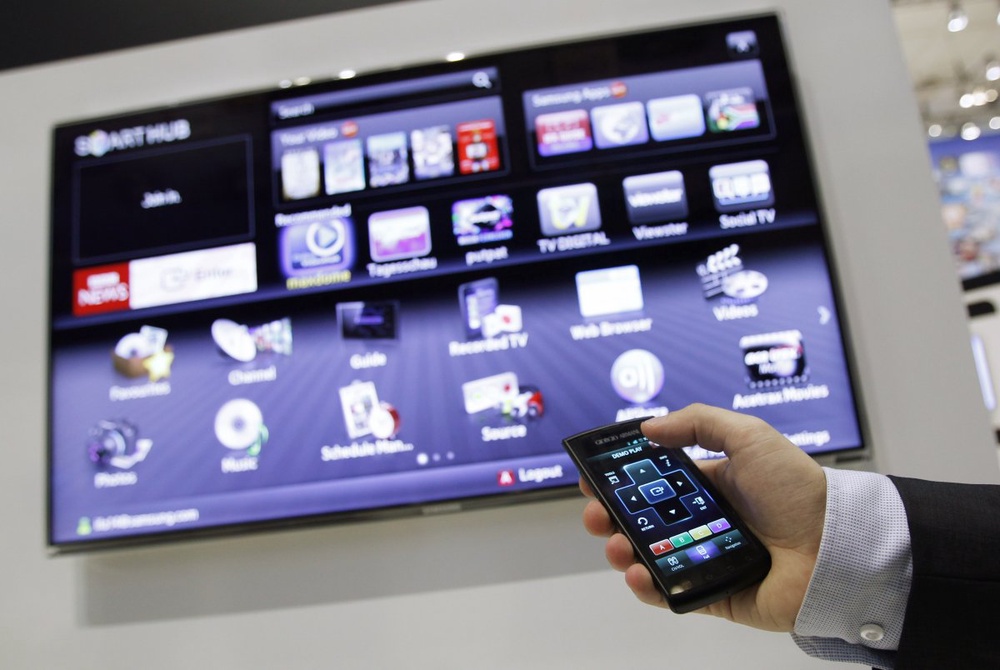
Smart homes that let residents control alarms, locks and more over the internet are opening doors for crooks with hacker skills, according to computer security specialists, AFP reports. "The smart home trend is growing, and it evolves quickly into a story of security," Trustwave managing consultant Daniel Crowley told AFP. "Connecting things to a network opens up a whole range of vectors of attack, and when you are talking door locks, garage doors, and alarm controls it gets scary." Crowley and Trustwave colleague David Bryan found security "pretty poor" on the home networking devices they studied. "If someone can access your home network, but doesn't have a key to your home, they can still unlock your door and get in," Crowley said of what he found in gear on the market. Trustwave researchers will share their findings Thursday with peers at a premier Black Hat security conference in Las Vegas and at the infamous Def Con hacker gathering taking place in that city through the weekend. A vulnerability of particular concern to the researchers was that once hackers joined local home networks, perhaps through poorly protected wireless routers or using malware slipped onto computers, they could control devices with no password or other authentication required. "The fact that you need to be on someone's local network to exploit these things is not as big a hurdle as you'd imagine," Crowley said. And the trend of providing people with smartphone applications for controlling smart home devices while away means that crooks who hack into handsets could potentially grab the reins, according to the researchers. There are also ways to use computer "IP" numbers to figure out real-world addresses, and some smart home applications, themselves, reveal location information, according to Trustwave. Combing that capability with hacking tools could put an Internet age twist on home burglaries, the researchers said. "I don't think this will be something that enables the ordinary criminal to do something they weren't doing before," Crowley said. "The big risk is that a compromise could give you access to hundreds of thousands of homes all at once; I could see that as an attack someone could actually use to launch a crime spree."





Smart homes that let residents control alarms, locks and more over the internet are opening doors for crooks with hacker skills, according to computer security specialists, AFP reports.
"The smart home trend is growing, and it evolves quickly into a story of security," Trustwave managing consultant Daniel Crowley told AFP.
"Connecting things to a network opens up a whole range of vectors of attack, and when you are talking door locks, garage doors, and alarm controls it gets scary."
Crowley and Trustwave colleague David Bryan found security "pretty poor" on the home networking devices they studied.
"If someone can access your home network, but doesn't have a key to your home, they can still unlock your door and get in," Crowley said of what he found in gear on the market.
Trustwave researchers will share their findings Thursday with peers at a premier Black Hat security conference in Las Vegas and at the infamous Def Con hacker gathering taking place in that city through the weekend.
A vulnerability of particular concern to the researchers was that once hackers joined local home networks, perhaps through poorly protected wireless routers or using malware slipped onto computers, they could control devices with no password or other authentication required.
"The fact that you need to be on someone's local network to exploit these things is not as big a hurdle as you'd imagine," Crowley said.
And the trend of providing people with smartphone applications for controlling smart home devices while away means that crooks who hack into handsets could potentially grab the reins, according to the researchers.
There are also ways to use computer "IP" numbers to figure out real-world addresses, and some smart home applications, themselves, reveal location information, according to Trustwave.
Combing that capability with hacking tools could put an Internet age twist on home burglaries, the researchers said.
"I don't think this will be something that enables the ordinary criminal to do something they weren't doing before," Crowley said.
"The big risk is that a compromise could give you access to hundreds of thousands of homes all at once; I could see that as an attack someone could actually use to launch a crime spree."


 +7 (777) 001 44 99
+7 (777) 001 44 99















































